Student Blog
Life Hacks
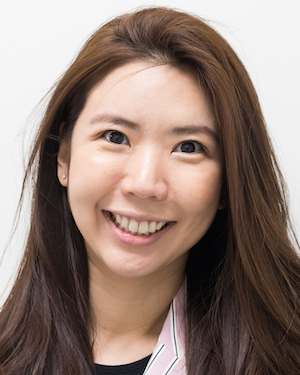
New Year, New Challenges, But We Got This! ⟩
January 22, 2020, by Catherine
Classes Life Hacks
This is my first blog post of 2020 and it feels great to be back. The holidays are a magical time of the year, but my passion for occupational science and occupational therapy puts a little more pep in my step when I walk into CHP. And while we are talking about the subject of the new year, we cannot exclude the popular tradition of setting goals, resolutions for our self! I had an interesting discussion recently during my OT 649 course about health behavior change models and in particular, Social Cognitive Theory (SCT), that might provide you some insight if you feel that you are having trouble sticking to any resolutions of your own.
In short, SCT states that people are in charge of their lives and environment and can be motivated to overcome challenges through a positive sense of self efficacy. This theory can inform health promoting behavior change interventions in occupational therapy, and other health professions. In other words, we are taking about the just right challenge.
One of the requirements of during the first semester of the OTD program is to pass the NBCOT exam and become a certified occupational therapist. Trying to juggle my residency hours in preparation for the 2019 Occupational Science Symposium, attending class, and studying for the boards required a lot of balancing priorities and self-control. I did not think that I had the mental and physical capacity to achieve this goal. What got me through this time was the support from faculty, colleagues, and the overall sense of community I have always been provided here at Chan. This support allowed me to maintain a level of self-efficacy that motivated me to overcome my doubts and proactively push myself to close the gap of what I thought I could not do, and what I wanted to do. And according the SCT, self-efficacy is key.
Experiencing and overcoming the challenges of the Fall semester has enabled me to increase my sense of self-efficacy and will motivate me to challenge myself in this semester, and the next, until I achieve my long-term goal to obtain my OTD degree! So if you feel like you might not be able to keep up with your news year resolutions, find yourself a cheerleader, adjust the goal, tackle it in parts, instead of going to the gym 5 days a week, start with today. And then next time, your mind and body will know, if you did it once, you can do it again, and you will be better positioned to go twice a week, and then three times a week, until you ultimately reach your goal.
⋯
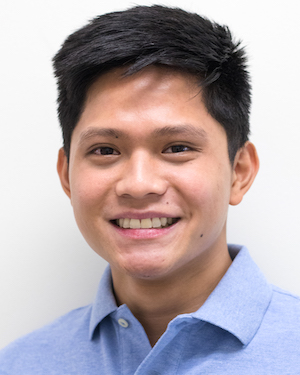
Winter Break with the cohort! ⟩
January 17, 2020, by Japeth
Life Hacks Living in LA
After the stressful finals week, some of my classmates organized an out-of-state trip to Utah to visit two national parks: Zion National Park and Bryce Canyon National Park. Driving to Utah takes about 8 to 9 hours, depending on the traffic, speed, and of course the rest breaks! So, we decided to do a stop over in Las Vegas and to eat lunch there, since Las Vegas is also known for its sumptuous buffets everywhere. By the way, driving from LA to Vegas takes about 4 to 5 hours.
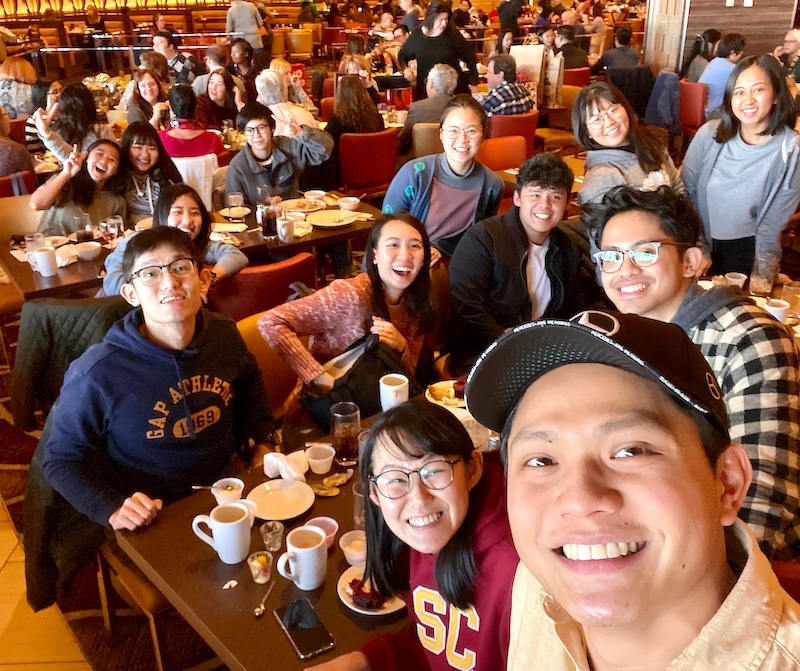
A groufie after eating so much!
After having lunch, we all decided to go back on the road and head to Utah. From Las Vegas to Utah, it took us almost five hours to get there. On the way to Utah from Vegas, we passed by Arizona — and the view is very relaxing! I am sharing some snaps of the view but my apologies if they are unclear, since the car was moving when I took them.

We didn’t mind the long drive from Las Vegas to Utah since the view while passing by Arizona was really beautiful.

Naturesque indeed!
We rented an Airbnb and surprisingly, the house was big enough to accommodate us all. One thing that made the house extra special was the hot tub that was available for use!
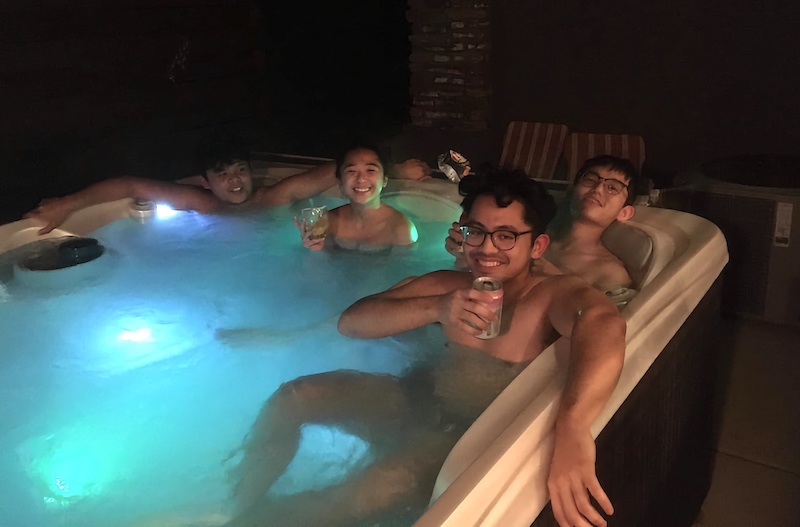
My friends living the life! What better way to enjoy the hot tub than by pairing the experience with some juice and chips?
First day: Off to Zion National Park
In this national park, you can choose as many trails a you want to enjoy; but given our time shortage, we chose one of the easiest but beautiful trails there was: The Watchman Trail. This trail typically takes about less than 3 hours going back and forth. However, it took us more than four hours because we enjoyed so much on taking pictures almost in every good spot we find along the way.
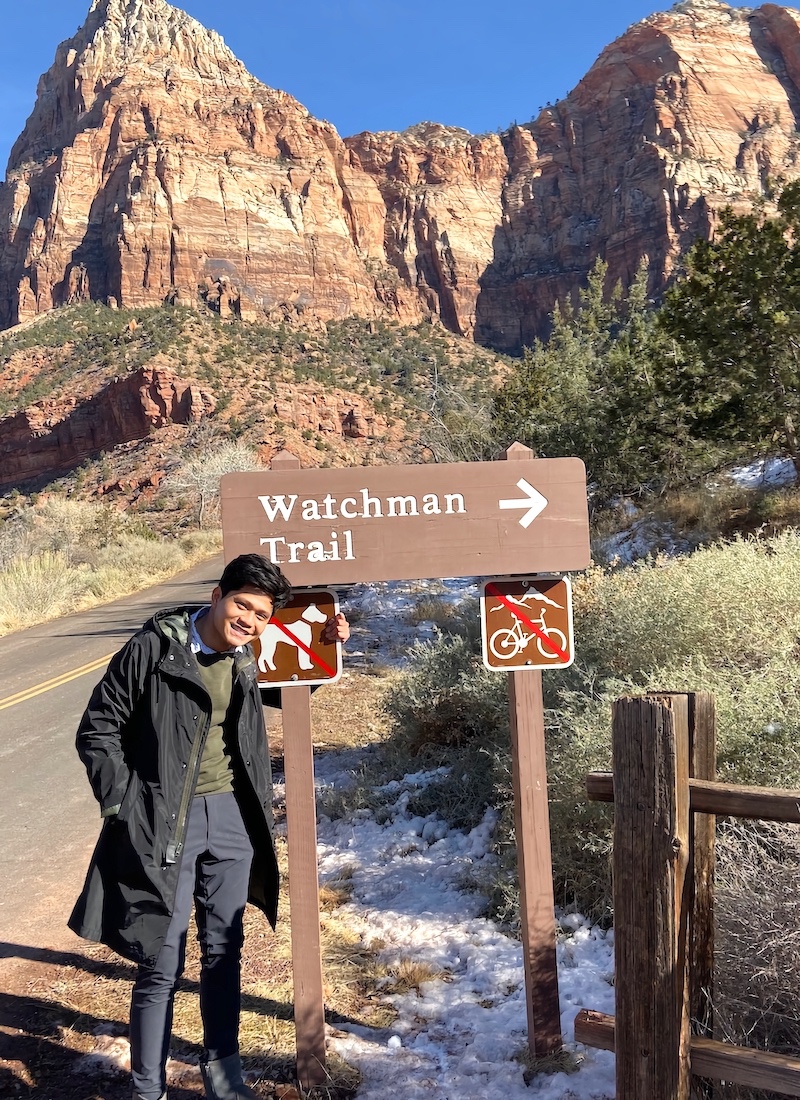
This is just my happy face after we finished trailing!
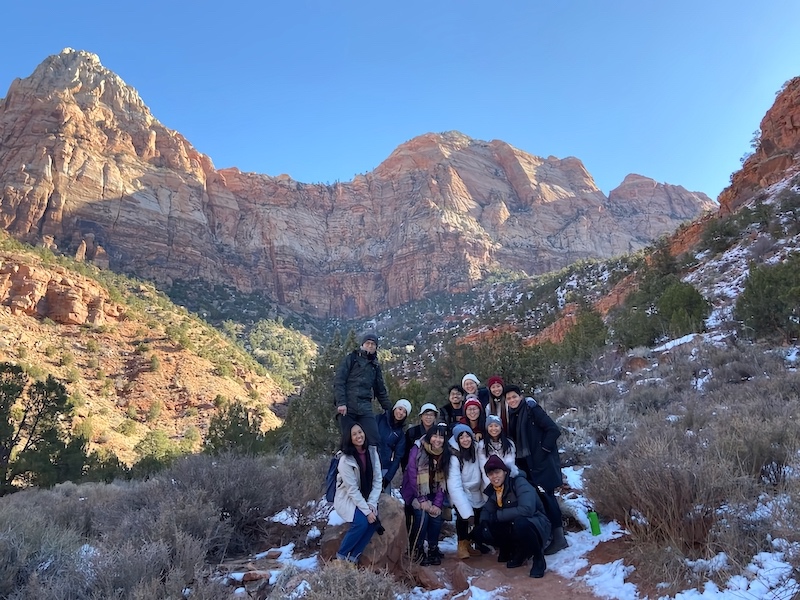
This is one of the group photos that we took while trailing. We don’t look tired here . . . yet!
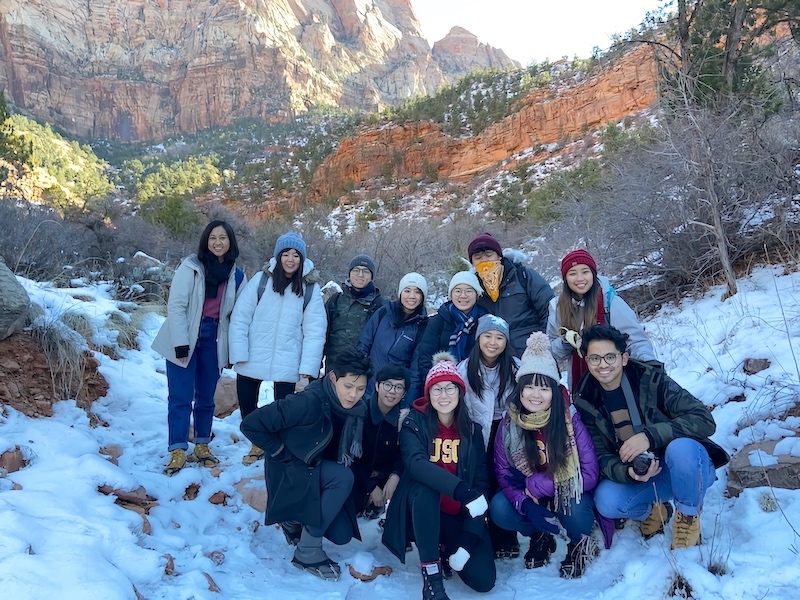
Another group photo! This time, it was colder since we encountered more snow while trailing. We had to wear our snow chains because there were some areas that were covered with ice, and it is so easy to slip when you don’t have the chains on. The cold bothered me, as seen on the picture I can’t even concentrate and look at the camera. LOL
When we finally reached the top, of course, we took more photos! We stayed on top for 30 minutes, enjoying the view while eating our snacks. The snow covering the mountains made the view extra beautiful. The sun being extra sunny that day, helped so much in braving the cold weather.
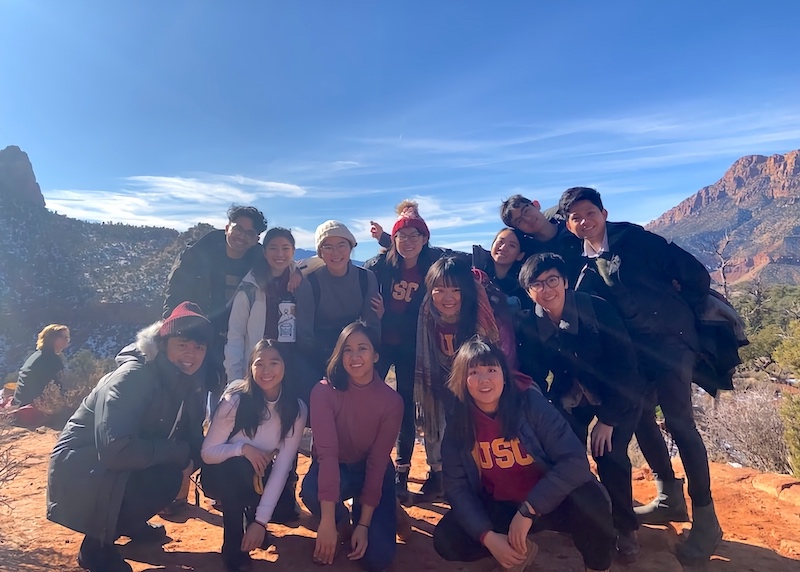
We are finally at the top! Tip: according to the locals, the best time to visit is winter since not a lot of people visit because of the very cold weather.
To end the day, we looked for a local coffee shop to warm ourselves up; and even the coffee shop did not fail to surprise us! The place was so beautiful, and they have a balcony area where you can sit outside, have your coffee, while looking at the lake and mountains.
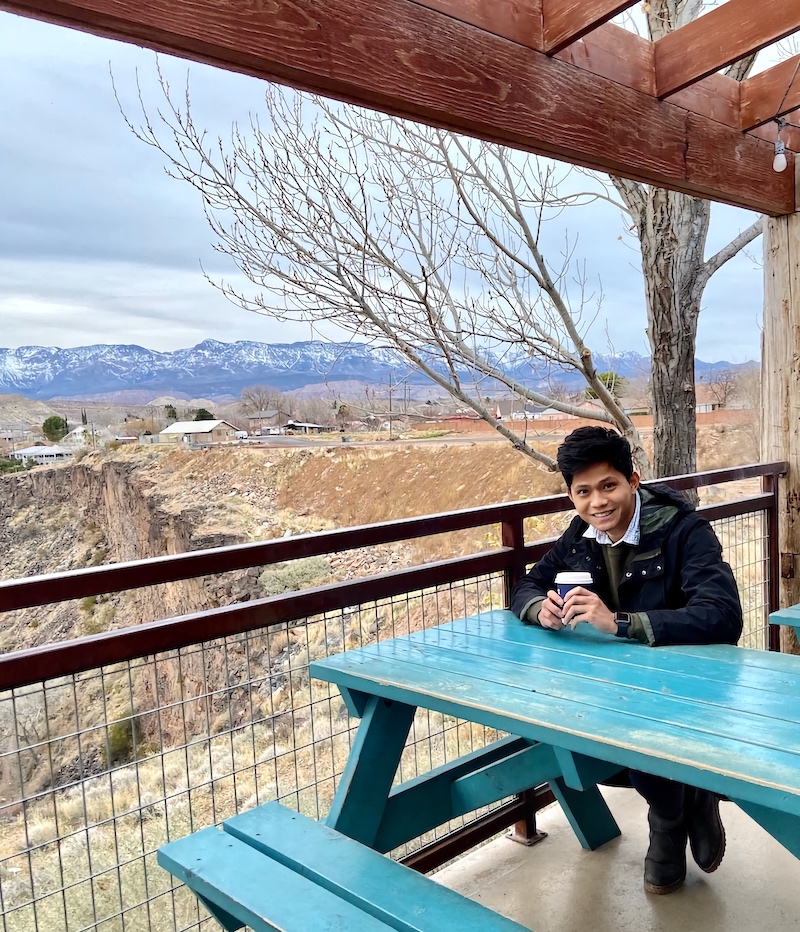
Good view + good coffee = good mood!
Day 2: Bryce Canyon National Park – Sunrise Trail
This trail was amazingly beautiful as well! We started from the top and we trailed down. Just when I thought that in order to see the beautiful view, we need to reach the top first, this trail proved me otherwise. Going down from the top made me appreciate the scenic view too! It goes to show that sometimes, we shouldn’t just focus on the beginning or the end; rather, we can also focus on the journey and enjoy every moment with the people we are with.
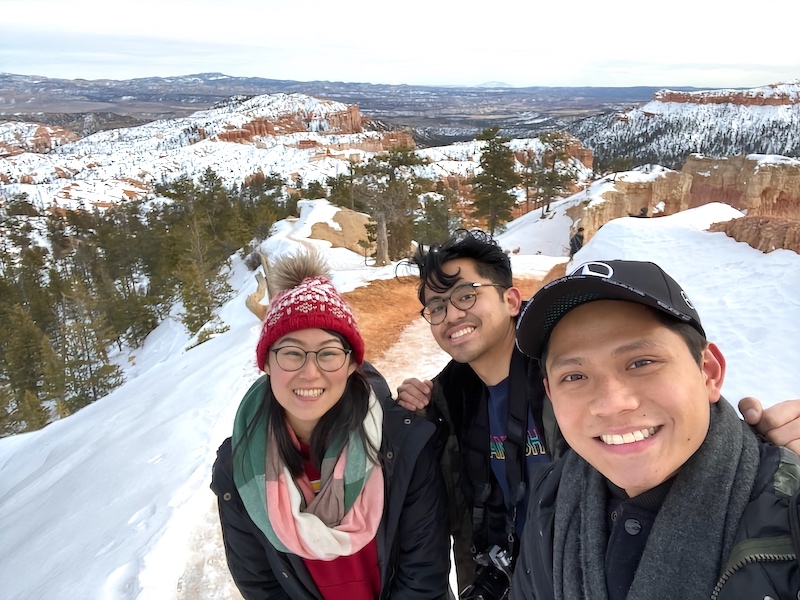
A groufie with my classmates Elijah and Maggie. Everyone went ahead of us at this point.
Here are photos of us before and after the hike!

This is our group photo before we started trailing down. The amazing people made the view extra beautiful!

Mixed emotions after finishing the trail. LOL
From the visitor center near the starting point of the Sunrise Trail, we drove a few miles from there going to Sunset Point — another point at the national park where the sunset is really gorgeous.

Although the sunset may not be clearly seen in this picture, I can still vividly see it in my memory. Everyone was just busy enjoying the view, and of course, each other’s company.
This trip will always have a special place in my heart and memory. Being with my classmates outside the classroom was a different kind of experience. It was a joy to be with them for several days and I certainly wish for more trips with them. Also in this trip, two other Trojan friends joined us: Nana Lin who is a Masters in Microbiology and Immunology student, and Eden Lin who is also doing her Masters in Computer Science.
Until our next adventure, Fight On!
⋯

Totally Worth It ⟩
December 5, 2019, by Catherine
Life Hacks
Having a family with two school aged children to take care of, and leaving the comfort of a steady income from having a job, was not an easy decision that I had to make before coming to USC. Yes, the financial burden of paying the cost of attendance was one part, but another part of me felt guilty about not being home for my nephews, who I co-parent. I was worried if I could be successful in my academic pursuits, while also maintaining a household. However, I knew that I had found a profession that I was passionate about, and would somehow make it work. As I reflect on my first semester in the OTD, I can confidently say, it has.
If you are like me and decide to pursue the standard progression of courses in the OTD, the OT-620 core course is the only one you are required to take this first semester. Because most of your week is dedicated to your residency, and your hours are negotiable with your site, this provided me a certain amount of flexibility. I have been able to continue to maintain my morning school drop off routines, and come home to have dinner, do homework and be present for my nephews consistently.
Taking advantage of the benefits of technology has also made my life a lot easier. Subscribing to their school calendars, and knowing in advance important school events has allowed me to not be thrown off-guard if my fourth grader forgot to tell me “Pastries with Parents” is tomorrow. And even though I may not be able to volunteer for every class event for my Kindergartner, the share sites teachers and parents utilize have kept me in the know. Not to mention the grocery delivery apps that have often saved me when I forgot to stock up on a lunchbox essential.
I am not saying that this process has been easy. It was not easy to study for my boards exams while negotiating with a five year old to take his bath. I have been lucky to have had wonderful support from other adult members of my family, the school (mine and theirs), and to be able to access the comforts of modern technology. However, looking back at my experience in the OTD so far, it has not only been manageable, but totally worth it. If you are like me when I was considering applying to graduate school; worried about how you are going go through graduate school and be a caregiver, I am here to say you can do it! If you have any questions about my experience, or want to know more about the OTD program, I am here for you, and would love to hear from you.
⋯

Studying without Stu(dying) ⟩
November 21, 2019, by Kaho
Life Hacks Living in LA
I don’t know about you, but I’m easily distracted by my environment. As soon as I sit down to study, my brain convinces me that my entire house needs to be deep cleaned this instant, or that I need to meal prep for the next 2 weeks, or it suddenly reminds me of an errand I need to run that I’ve been putting off and is obviously not time sensitive. If I manage to win that internal battle and remain at my desk, then my bed starts to look incredibly cozy and warm and before I know it, I’m wrapped up in there like a burrito and hours have passed . . . Unfortunately, I just cannot study for long periods of time in the comfort of my own room or home. If you just nodded in agreement, this post is for you. 👉
After trying to study in various places around my house, I’ve found a few favorites that always get the productive juices in me flowing. I live near the main campus, UPC, so I usually study somewhere around there.
- The Village
This is my favorite spot of all time. There are tables and chairs in the plaza next to a fountain, where numerous undergraduate and graduate students sit down to study or chat with friends. It’s outdoors, so I love being able to feel the calming breeze while soaking up some SoCal sun. There’s a Trader Joe’s, Target, and various shops surrounding the plaza, so I can always run for a snack or meal if I get hungry. If I need an outlet or I want to go indoors because I’m baking in the sun, there are cafés like Dulce and Starbucks that still promote productivity. When I need a quick break, I just look up from my books or laptop and people-watch. It may sound strange, but it’s really interesting to see all these different lives and situations coming together in one place. I just like to gaze around the plaza and see what people (and their dogs) are up to. I could study here for hours. Doheny Library
My second favorite is Doheny Library. In my opinion, it’s the prettiest library at USC. I go here when I really need to concentrate and grind out some work because it’s quieter than the Village and there are less people. It also kind of makes me feel like I’m in a Harry Potter movie, so I guess that helps too. There’s a study hall in the corner of this library where the ceiling is high, books line all of the walls, and there are numerous long tables for students to sit at. It gets an ample amount of natural light and outlets are conveniently located. Just sitting in the room instantly makes me feel more intelligent and motivated.Any coffee shop
I won’t go into much detail about this one because there are hundreds of influencers out there that can do a much better job than I can of ranking aesthetically pleasing LA coffee shops. But, I just wanted to point out the existence of numerous aesthetically pleasing LA coffee shops. Once you start exploring, the possibilities are endless. Just Google “best LA coffee shops” and you’re good to go. (Side note: The next place on my coffee exploration list is Blue Bottle because a dear friend got me a gift card. I’m pretty excited to try it this finals week.) Sitting down with a nice cup of coffee in a well-decorated space with relaxing music is always a good indicator of a productive day.

Tables and chairs in the USC Village plaza

Study hall at Hogwa—I mean, Doheny Library
Finals week is coming up and it seems to be a tough time for a lot of people, but the least you can do is study in a space that makes you feel relaxed and comfortable. You’ll definitely find me in one of these three places these coming weeks. Don’t forget to get some sun, listen to some music, eat well, sleep well, and good luck!
⋯
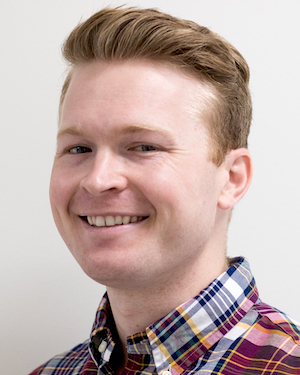
Family Traditions ⟩
November 20, 2019, by Kevin
Life Hacks
With the holiday season approaching, it got me thinking about what make the holidays so special for me. At the top of my list are the traditions I celebrate with my family. For the past four years, my girlfriend Jenna and I visit my family in NorCal to celebrate thanksgiving and these are the traditions that are the most meaningful to me.
Although we arrive a few days before thanksgiving, the festivities start the moment we arrive. On the first day, my mom always makes pies and more importantly “pie sticks” . . . what are pie sticks you may ask? Well it’s essentially just the pie crust baked with cinnamon and sugar on top. We all know the crust is the best part of pie, so let’s just get to the good stuff . . . right? After we’ve filled up on pie sticks, we walk from my parents’ house, one street down to my older sister’s house to play the latest board games. I never know how she does it, but my sister always has the most fun board games that I’ve never played before. It’s even become a tradition to bring the games my sister taught us to Jenna’s family during their holiday celebrations. The next day we head to Wright’s Lake to kayak. In November, Wright’s Lake is usually partially frozen over, and is surrounded by snowcapped mountains making it one of the most breathtaking scenes of nature I have ever seen. After a day of exercising our upper body kayaking, we wake up early Thanksgiving morning and do a charity 5k run. The run helps me feel more justified in the amount of food I will consume later in the day. The rest of the day we help our relatives prepare the Thanksgiving meal and then we all eat together while sharing stories to catch up on the past year. The next morning we get up early again and we head toward South Lake Tahoe to find a tree in preparation for Christmas.

Wright’s Lake
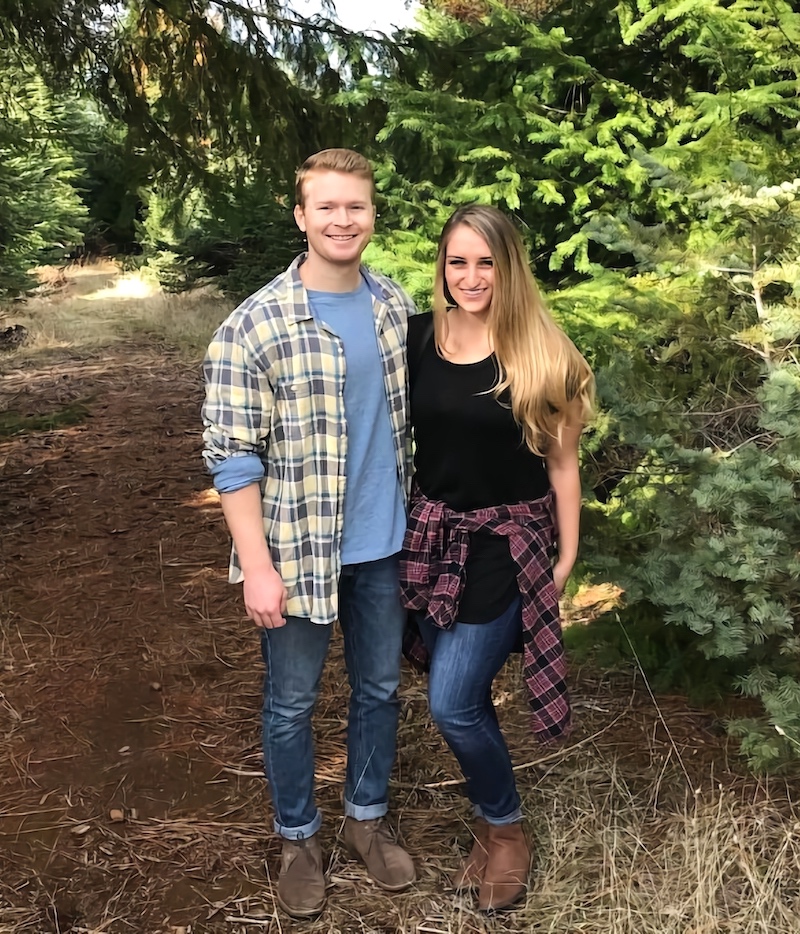
Jenna and I searching for the perfect tree!
Needless to say, I cannot wait for next week because I am grateful to have these traditions that allow me to spend quality time with the people I love!
⋯





